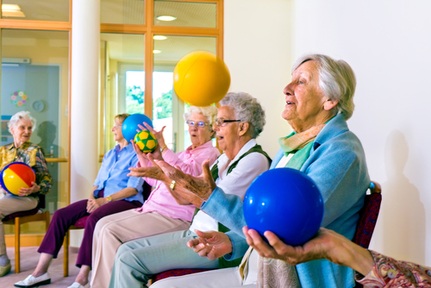Care home managers say care is 'sidelined' by outdated processes IT could replace
Care home managers say the quality of care residents receive is being ‘sidelined’ because of time-consuming, manual processes that could be eliminated by better use of IT, a new poll reveals.

A new poll of 100 care home managers across the UK has revealed the vast majority (80 per cent) believe care quality is at risk, as well as productivity and staff happiness but could be improved by technology which would free up the care workforce’s day.
Two thirds of the 330 care home workers polled last May, admitted that care quality and nutritional needs are being ‘overlooked’ due to ‘outdated’ methods.
Three in five care homes (63 per cent) thought introducing new technology would help reduce administrative burdens and make running of their care home easier.
Ollie Brand, chief executive of Zupa, which commissioned the poll, conducted by Censuswide between 6-11 May 2022, said: “We know from previous research that care home staff are often overstretched, underpaid and in many cases unhappy.
“We also know that care professionals are keen to have more time back in their day in order to improve job satisfaction, morale and delivery of care.
“Recognition that the right technology can help, is critical to creating positive change across the sector but despite this, many care homes are still failing to make the connection between outdated processes and the key concerns raised by care workers today.”
Despite concerns about the impact manual processes such as paper-based documentation was having on the quality of residents’ care, most care homes (52 per cent) believed new technology was ‘too expensive’ to change the status quo of how things are done.
Technology considered 'too difficult'
Technology was thought to be ‘too difficult’ to implement due to a perceived lack of in-house expertise.
Some 38 per cent of care home managers said they don’t have the expertise in-house to effectively introduce new technology within their teams. They said onboarding and training staff to use new systems was also a barrier. One fifth of care homes also cited that new technology doesn’t fit with their culture.
Mr Brand added: “Interestingly this latest study has uncovered several misconceptions around the implementation of technology in care homes, and there are contradictory themes within the research which may suggest a knowledge gap around how technology can help staff as well as a failure to link some of the key concerns raised, with technology as a resolution.
“Can technology improve staff happiness by reducing admin and giving them back more time in their day? Can or will that in turn improve productivity and allow care workers to spend more time on delivery of care? With the care sector in such crisis there is a call for a new way of working and these are the questions care homes need to be asking.”
The poll was commissioned to understand what would be prioritised if care home professionals were given more time also highlighted challenges concerning staff retention, morale and the overall quality of residential care.
Top concerns care home staff have about the running of their care homes include a lack of staffing and resource. Some 41 per cent are worried about rising costs and inflation. Some 29 per cent also expressed fears about managing risk.
Latest News
 29-Jul-24
Dementia Bus gives carehome.co.uk staff insight into life with dementia
29-Jul-24
Dementia Bus gives carehome.co.uk staff insight into life with dementia
 01-Mar-24
Find out the top care homes in 2024
01-Mar-24
Find out the top care homes in 2024
 21-Mar-23
UK's top care homes in 2023 revealed
21-Mar-23
UK's top care homes in 2023 revealed
 03-Jan-23
carehome.co.uk launches free care helpline
03-Jan-23
carehome.co.uk launches free care helpline
 13-Dec-22
5 mins with Emily Whitehurst, chief operating officer for Constantia Healthcare
13-Dec-22
5 mins with Emily Whitehurst, chief operating officer for Constantia Healthcare